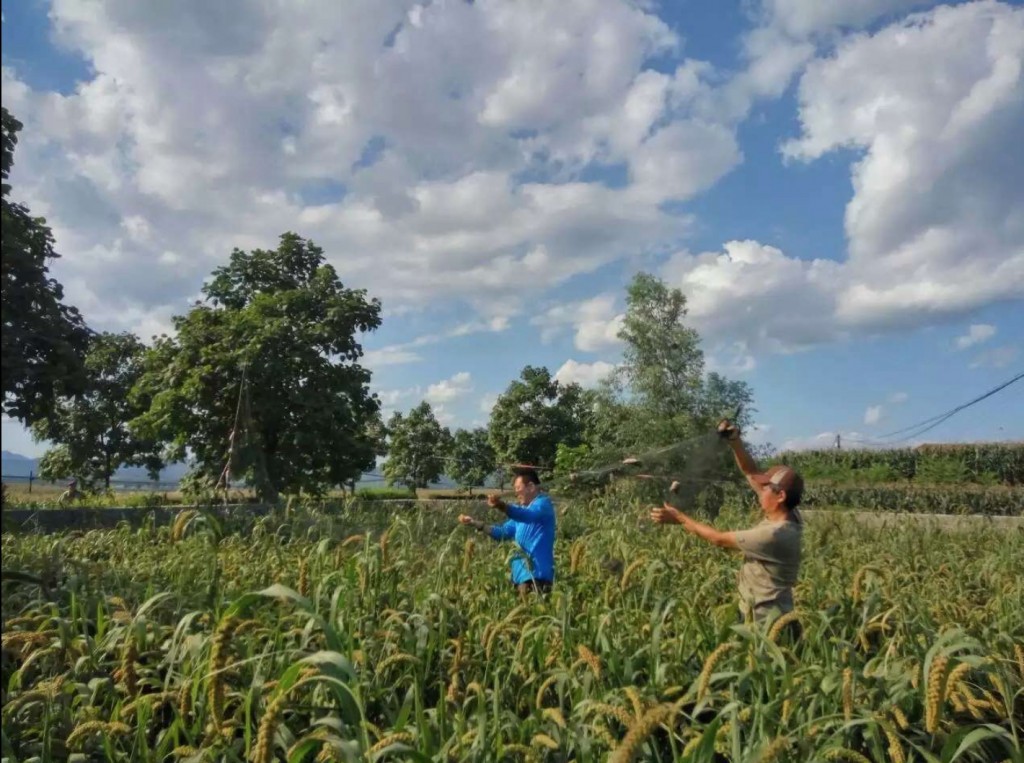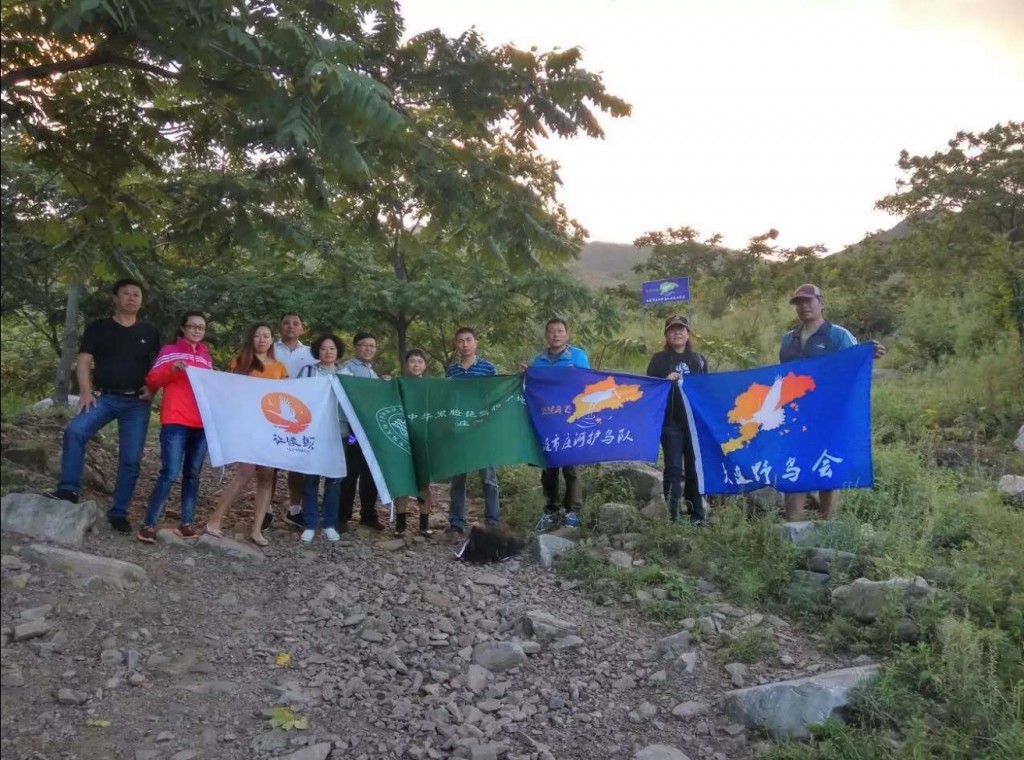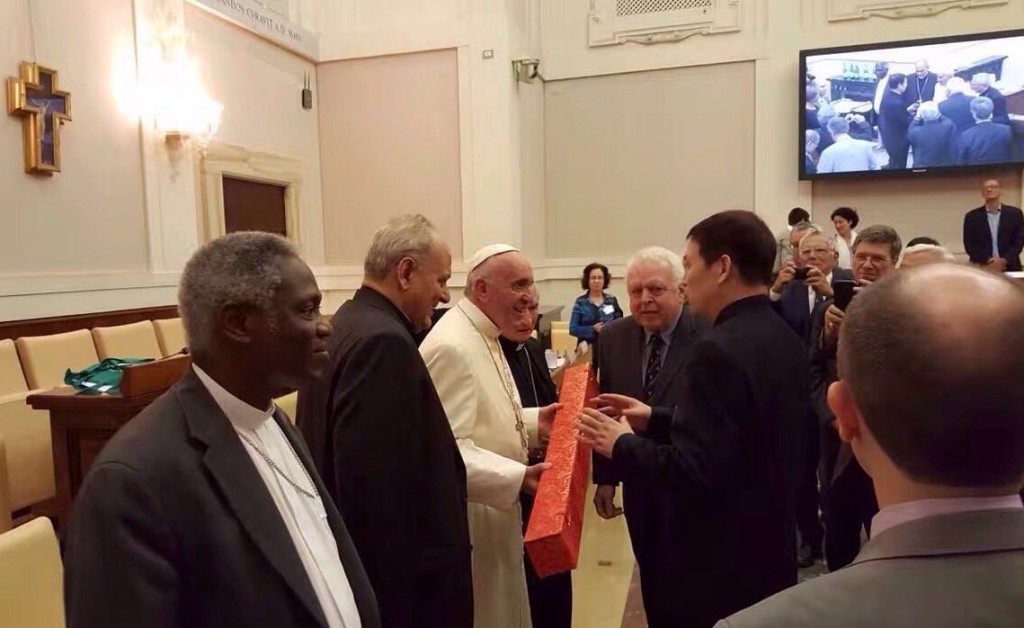BY TRANSCEND MEMBERS, 21 Nov 2016
Minister Hu Deping | Eco Jesuit – TRANSCEND Media Service
From the Perspective of a Chinese Non-Governmental Organization
Second part of the paper of Minister Hu Deping that Prof. Frederick Dubee, of the TRANSCEND Network and the Beijing Genomics Institute, presented at the Joint Consultation of the Pontifical Council for Justice and Peace and the Pontifical Academy of Sciences on Laudato si’ and the Path to COP22 at Casina Pio IV, Vatican City, 28 September 2016.

31 Oct 2016 – The China Biodiversity Conservation and Green Development Foundation (CBCGDF) understands that its mission is to build environmental awareness and to translate that awareness into action, to help and support society and all stakeholders in bringing about meaningful change. This is to ensure that China’s dream will not implode through the pressures of omission, inaction, and the cancer of “selfish” systems that demand and extort “profit at any price.” There is also the social justice needed and the participatory and sustainable resource use and management that must be promoted.
The Foundation has taken to heart all that has been learned from the tremendous investment in resources, effort, innovativeness, dedication that have gone into the Millennium Development Goals. Failure and success have been great teachers and the needs of the disadvantaged and the requirements of future generations are constantly inspiring and provoking us to critically and proactively assess what must be done, what we must cease doing, and to re-examine what we are doing and planning to do, in the light of the intricacies and interactions of the whole system.
Through the China Guangcai Program, initiated and implemented by Chinese private entrepreneurs to contribute to China’s poverty alleviation efforts in response to the “8-7 Plan” for poverty reduction (or 80 million people to be lifted out of poverty in seven years), we learned that if government, the private sector, and non-governmental organizations each bring their core competencies into a collaboration with to provide sustainable social and economic development and employment in the poorest regions of China, millions could lift themselves and their families from poverty and move steadfastly to a better life today and in the future.

The CBCGDF views itself as a solid and effective platform to provoke, stimulate and empower individuals, institutions, as well as informal and formal organizations, to think, to build awareness, and to seek collaboration to act meaningfully. Allow me to share some examples of how this works:
Through the Environmental Public Interest Litigation project, the CBCGDF seeks to empower and support those who wish to exercise their rights as citizens to seek redress for environmental damages. Through a comprehensive approach that integrates political and legislative action, the CBCGDF brings together caring individuals and groups, as well as experts and decision makers from government, consultative and legislative bodies, and the justice system. This collaboration and interaction encourage the development, enactment, and appropriate enforcement of policies, laws, regulations, and projects to effectively support China’s drive for people-centered development, the strategies and goals for sustainable development, environmental friendliness, biodiversity conservation, and green development.
By encouraging and facilitating open sharing of information and ideas and collaboration that crosses silos, boundaries and borders, the CBCGDF helps expand the expertise and experience and innovative capacities to address old and new challenges in radically different ways. This spirit and reality of collaboration can be seen today in this Joint Consultation. It can be seen in the collaboration with Buddhists across the world, with faith-based entities such as the Amity Foundation. It can be seen in the respect and proactive response to the wonderful provocation of Laudato si’.
Through programmes such as the China Conservation Area (CCAfa), the Foundation promotes and implements a citizen-driven approach to ensure the conservation and quality of protected areas for the protection of endangered animals, plants, cultural and historical heritage, scenic spots, and other resources of great value to all, rich and poor. So far, 22 CCAfas have been established around the country, including China Conservation Areas for endangered animals such as great bustards, relic gulls, Chinese white dolphins, threatened plants like the Chinese maple (Acer pentaphyllum)and old jujube trees. The CBCGDF also set up two China Conservation Areas for dark sky at Nagqu and Nagri, Tibet, which are China’s first two conservation areas to fight against light pollution.
Through the One Belt, One Road project, China is committed to support efforts to seek prosperous and sustainable lifestyles in an environment of peace and justice. The CBCGDF is committed to work with the people of each nation along the New Silk Road in collaboration with the UN and others in the preservation of biological diversity and promotion of responsible development.
Please understand that while the CBCGDF is a platform, a support, and an innovator for radical progress toward integral ecology, it is not an outlier but fully in harmony with the spirit and the direction of the government and the people of China.

Open Sharing, Collaboration, and the Youth in Caring for Our Common Home
In closing, we must remind ourselves that while the needs and threats are severe and urgent, we must beware of the temptation to place undue hopes on quick fixes, on actions focused on one part of the problem, disregarding the sanctity of the whole and the interdependence of each of its interlocking components.
We must be committed to the open sharing of information, experiences and knowledge. We must understand that collaboration within our country and abroad is the most effective route to sustainable development.
And while we must respect the wisdom that comes with age and experience, we must place great emphasis on our youth and focus on ensuring that they can develop the knowledge, the creativity and the character, the moral strength and fortitude and the wisdom to selflessly engage, to become active and innovative contributors in building a better world, a world of wellbeing, of harmony and of justice and peace for all.
Pope Francis reminds us that science at its best can help us listen to the cries of the earth, our common home, and we know that our hearts help us listen to the cries of the poor, our sisters and our brothers. Our task, our responsibility, our privilege is so very clear.
____________________________________
Hu Deping is the Chairman of the China Biodiversity Conservation and Green Development Foundation and was the former Vice Minister of the United Front Work Department of the Central Committee CPC, a former member of the standing committee of 10th session of the National People’s Congress (NPC), Member of the standing committee of the 11th session of the Chinese People’s Political Consultative Conference, Member of the NPC Internal and Judicial Affairs Committee, and Vice Chairman of the All-China Federation of Industry and Commerce.
The China Biodiversity Conservation and Green Development Foundation is an independent non-profit organization based in Beijing and founded in 1985 dedicated to environmental protection, wildlife and biodiversity conservation.
++++++++++++++++++++++++++++++++++++++++
Please click for the original article at: https://www.transcend.org/tms/2016/11/a-changing-china-in-a-changing-world-and-a-changing-climate-part-2/
